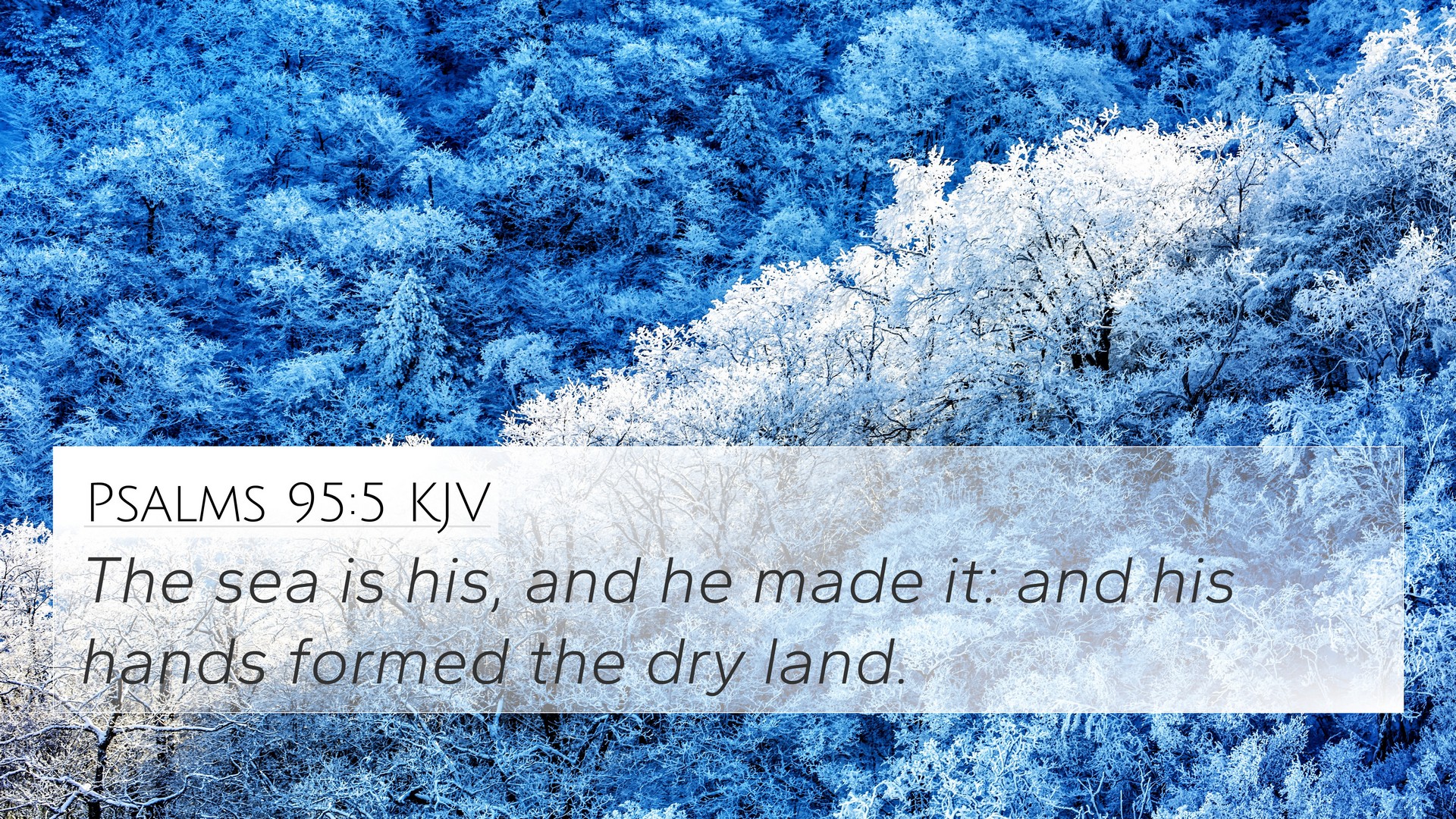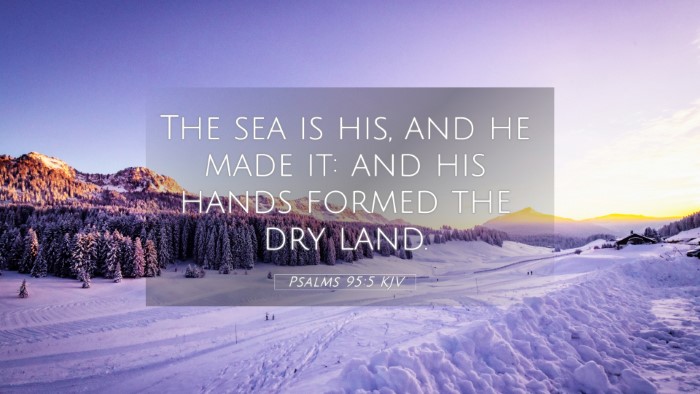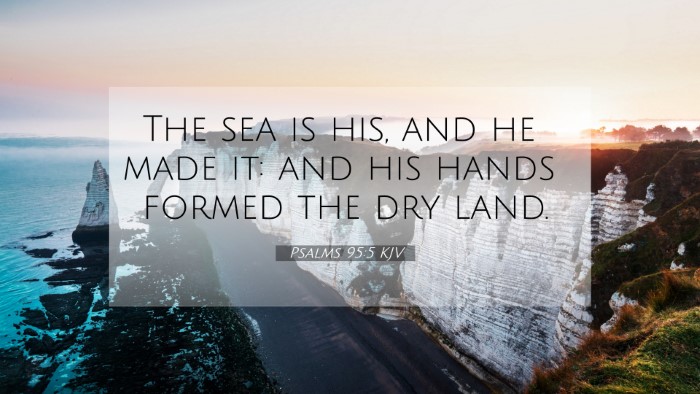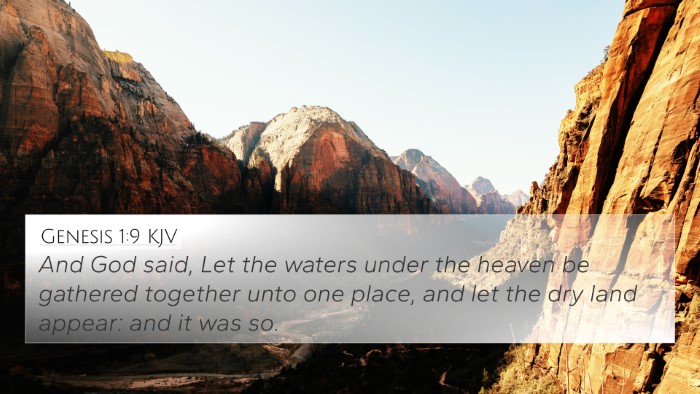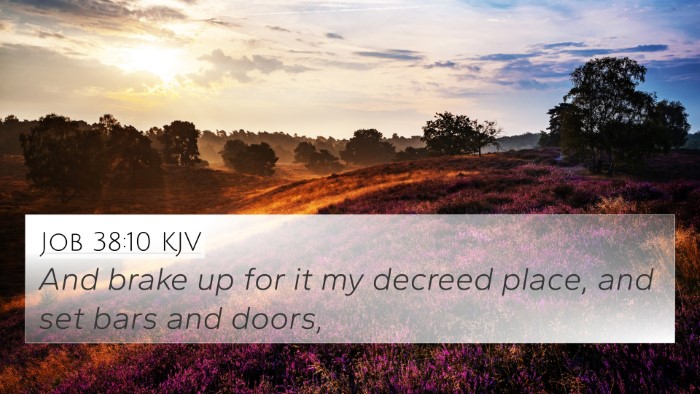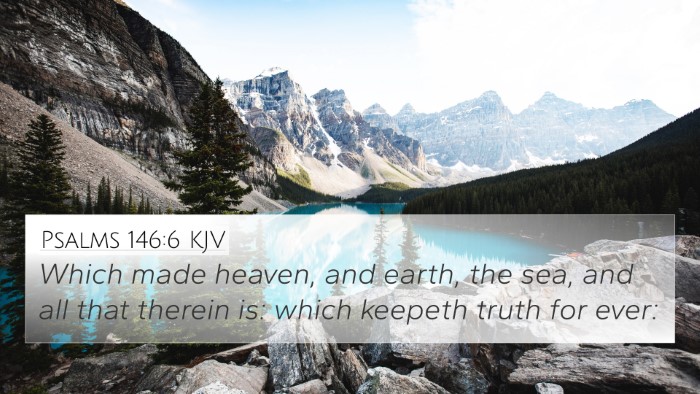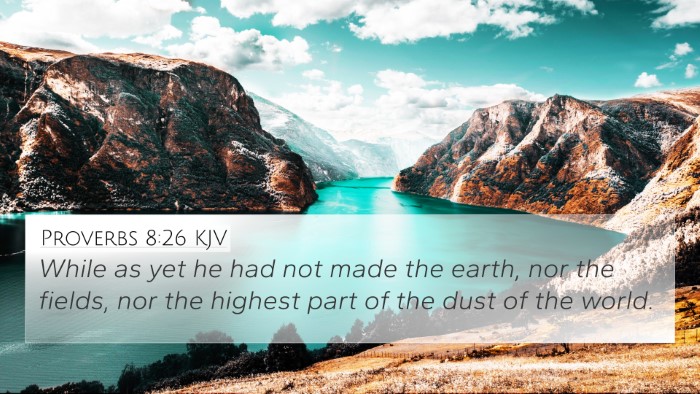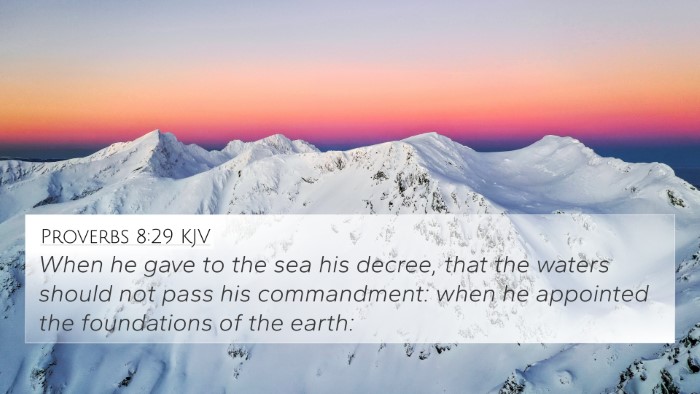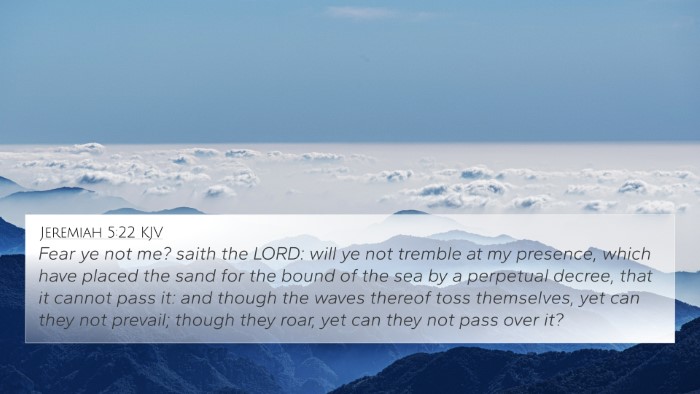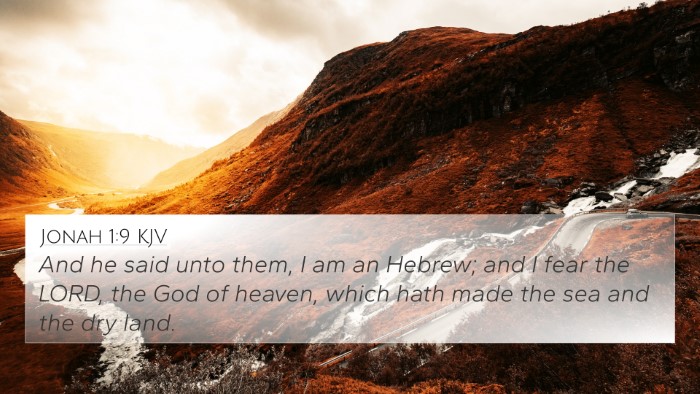Understanding Psalms 95:5
Psalms 95:5 states: "The sea is his, and he made it: and his hands formed the dry land." This verse beautifully encapsulates God's sovereignty over creation, indicating that everything within it falls under His dominion.
Summary of Insights from Public Domain Commentaries
This section combines insights from renowned biblical scholars like Matthew Henry, Albert Barnes, and Adam Clarke, offering a comprehensive understanding of the verse.
Matthew Henry’s Commentary
Matthew Henry emphasizes the importance of recognizing God's authority as the Creator. He points out that the seas and dry lands, both formed by God's hands, are indicative of His power and majesty. Henry suggests that understanding this divine sovereignty invites humility and worship from believers. He links this verse to the broader theme of God's creative acts, reminding us of Psalm 104:24-25, where the psalmist marvels at the glory of creation.
Albert Barnes’ Commentary
Albert Barnes identifies the verse as a declaration of God's ownership of creation. He notes that by attributing the creation of the sea and dry land to God's hands, the verse establishes His right to reign over all that exists. Barnes also highlights the significance of nature in understanding divine attributes, making this verse a pivotal point for those studying the connections between Biblical texts.
Adam Clarke’s Commentary
Adam Clarke discusses the poetic nature of the psalmist’s expression, where the seas and dry land represent the totality of God's creation. He leans into the interpretation that this verse serves as an invitation to worship, encouraging believers to recognize God’s majesty as the foundation for their faith. Clarke also draws parallels with other scriptural references as tools for deeper Bible study.
Cross-References and Thematic Connections
Psalms 95:5 is interwoven with several other key Bible verses, which together form a rich tapestry of thematic connections. Below are some notable cross-references:
- Genesis 1:10: "And God called the dry land Earth; and the gathering together of the waters called he Seas: and God saw that it was good." - Establishes God's role in creation.
- Psalm 24:1: "The earth is the Lord's, and the fullness thereof; the world, and they that dwell therein." - Affirms God's ownership over creation.
- Isaiah 45:12: "I have made the earth, and created man upon it: I, even my hands, have stretched out the heavens, and all their host have I commanded." - Highlights God’s power as a creator.
- Job 38:8-11: God questions Job about the creation of the sea, reinforcing His authority and control over creation.
- Revelation 4:11: "Thou art worthy, O Lord, to receive glory and honor and power: for thou hast created all things, and for thy pleasure they are and were created." - Connects worship with God's creative power.
- Psalm 33:6-9: "By the word of the Lord were the heavens made; and all the host of them by the breath of his mouth." - Stresses the power of God's word in creation.
- Colossians 1:16-17: "For by him were all things created... and by him all things consist." - Indicates Christ's role in creation, forging connections between Old and New Testament.
Theological Implications
The implications of Psalms 95:5 reach far beyond the act of creation itself. It calls believers to acknowledge and worship God as the ultimate creator and sustainer of the universe. This idea resonates throughout Scripture, forming a significant theme in the Bible's overarching narrative.
The connections between these verses allow for a comparative Bible verse analysis that reveals deeper theological insights. Through their inter-Biblical dialogue, we can understand God's nature and the importance of recognizing His power as foundational to faith.
Tools for Bible Cross-Referencing
For those seeking to explore the connections between Bible verses further, utilizing tools such as a Bible concordance or a Bible cross-reference guide is essential. These resources can aid in identifying thematic Bible verse connections that illuminate the text's meaning. Here are some helpful methods and resources:
- Bible Concordance: A comprehensive index of biblical words and phrases to find related verses.
- Bible Reference Resources: Tools that offer explanations, summaries, and historical context for deeper understanding.
- Cross-Referencing Bible Study Methods: Approaches that involve studying passages in relation to one another to identify themes.
Conclusion
In summary, Psalms 95:5 serves as a profound testament to God's creative power and majesty. Through careful examination of related scripture, one can appreciate the interconnectedness of Biblical teachings. By engaging in cross-referencing Bible study, believers can deepen their understanding and appreciation of the Scriptures, nurturing their faith and worship.
